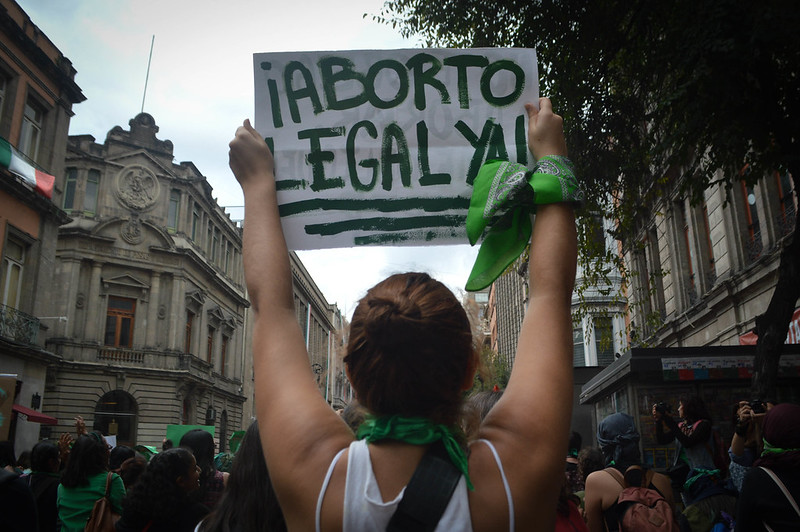
Paul Avila-Guillen, a human rights attorney and leader of Latin America’s “green wave” movement for reproductive rights, never thought she would have to fight for abortion rights in the U.S. However, that was before the U.S. Supreme Court overturned Roe v. Wade on Friday, causing nearly a dozen states to criminalize abortion.
Earlier this year, Avila-Guillen joined the fight in her native Colombia to legalize abortion for up to 24 weeks. The effort took 15 years of advocacy and mobilization. Colombia now joins Argentina and parts of Mexico in the short list of places in Latin America where abortions are no longer considered a crime.
“It’s a marathon, not a sprint. We need to be here for the long fight,” said Avila-Guillen, Executive Director of the Women’s Equality Center, based in New York.
She believes results in the U.S. fight to restore abortion rights could manifest sooner by focusing on advances in how abortion is provided — including the possibility to receive abortion pills by mail and pushing for congressional legislation to codify abortion rights.
International legal and human rights organizations have been focusing on efforts to help women in countries such as El Salvador, where abortion is entirely illegal, for decades. Women in places where abortion is criminalized are often wrongfully convicted for stillbirths and miscarriages.
Sixty-five of those imprisoned women have been released with the help of international and national advocates like Avila-Guillen, who emphasized that criminalizing abortions disproportionately affects low-income women of color, LGBTQ+ individuals, and immigrants – especially those who are undocumented.
The U.S. Supreme Court revoked the constitutional right to an abortion in a 5-4 vote. The move is a direct result of decades-long efforts by conservatives, religious activists, and advocates who oppose abortion.
“Change doesn’t happen in a day, in a year, or one election cycle. We got here over decades of carving away access to birth control, sex education, and abortion access. We have to think 30 or 40 years out. That’s going to require us to be active locally, federally, and across issues,” concluded Kierra Johnson, Deputy Executive Director of the National LGBTQ Task Force, which has a long history of advocacy for abortion rights.

Recent Comments